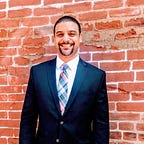Agok
Memoir
Abyei, Sudan — 2009
The rains are sudden, hard and fast, as if the Gods, in a moment of panic, have decided to release all that they have from the skies above Agok. The Tukul is barely holding, water streams through the straw, so that only a small island of dry remains in the centre. And here I sit, my computer screen flecked with water, the floor around me gradually drowning, a kitten, small and worn, hungry with neglect, crouching at my feet as if hiding from the rising waters. Thunder breaks.
It has been a long time since I was last in Agok, longer still since I last wrote. Last time I was here it was the dry season and Khartoum, now HQ, still a distant land, an ambition, a promise of power and politics. It is this city, a haze of orange dust and yellow heat, that I blame for my absence.
Like all big cities, it has taken me in and filled my soul, so that every day and every space seems cluttered and busy, so that even in repose there is a sense of expectation, a telephone call to be made, a person to see, something to buy, somewhere to go.
It is not without a sense of irony that I realize that in Agok I have found relief, that in brief, temporary hardship, in this place of mud roads, and mud homes, I have at last found the space to breathe. Last night I slept a deep and dreamless sleep, calmed by the quiet rhythm of the dark and the unforgiving black of a night with only the stars and the moon for light.
Mijack is our lead here, thirty two years old, six foot seven, a husband and a father and the son of one of the most important Dinka families in the region. He moves in big, slow steps, as if the world were his, that it is just a little too small and he must be careful not to break it.
A former teacher, now democracy advocate, he has the calm intelligence of a man used to operating in a place where contemplation is a valued quality, action an often dangerous pursuit and misinformation and uncertainty the two things that men must learn to expect more than any other.
Voting day is now only months away, Sudan’s first multiparty elections for twenty two years. In Agok the practicalities of the operation remain a distant vision, an idea without reality. Yet people here are keener than most to have their voices heard and their mood is torn between expectation and cynicism, hope and despair, unwilling to accept the brutal truth, but unclear as to how it can be any other way.
It is against this background that we must do our work, organizing meetings, training volunteers and raising awareness of the importance and value of democracy.
The battle here is against the dulling throb of uncertainty, against a fear, a knowledge, that the communities fate lies in the hands of others, that “the strong do what they can and the weak suffer what they must”. NDI’s presence here is only in small part about the knowledge that we bring, we are a reminder that there are places where it is not like this, that maybe one day things here can be different.
Tomorrow I will leave, carried first to Juba and then to Khartoum by small planes guided by foreign pilots across swamp, savannah and desert. What I take with me is a reminder that in the battle for change, for the world as it should be and not as it is, it is a man’s spirit that matters most.
